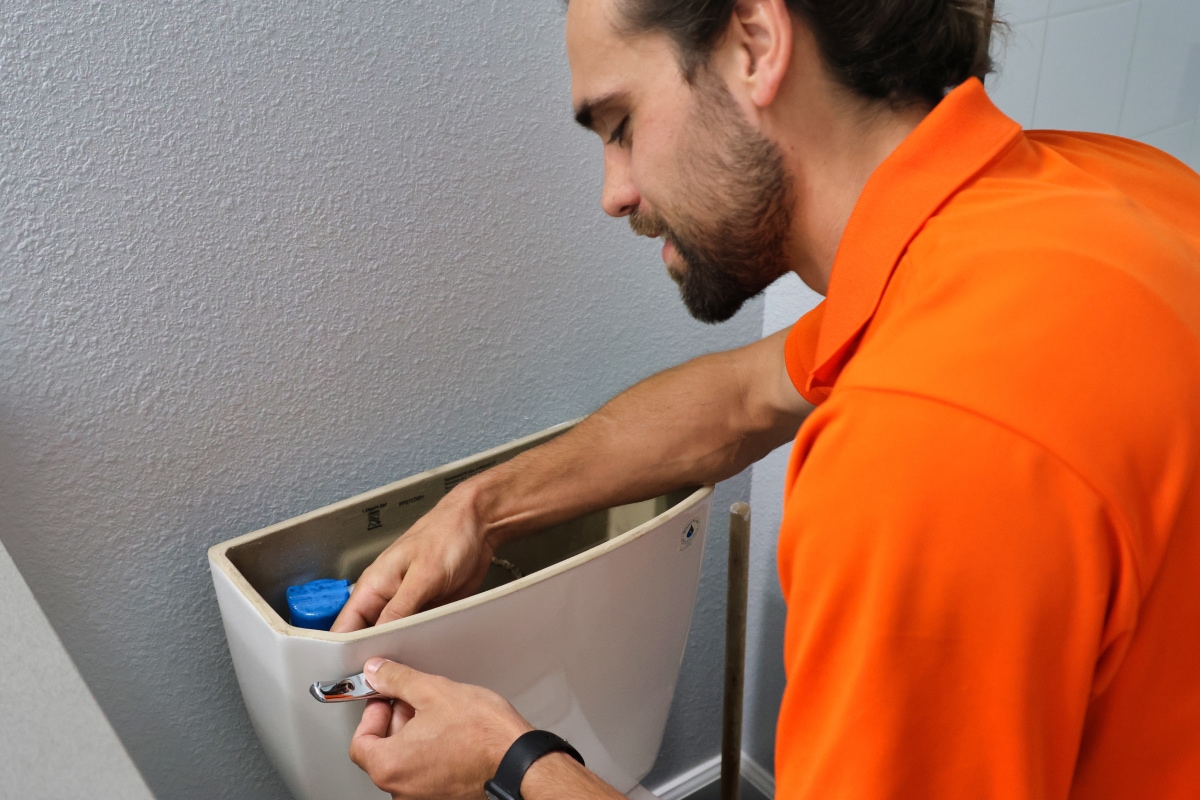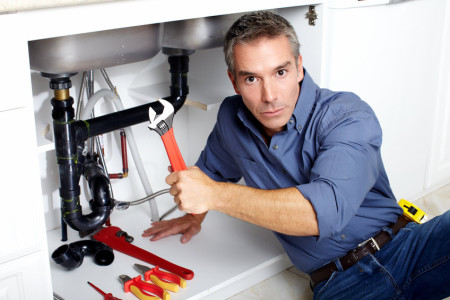What are your thoughts about Expert Tips for Emergency Plumbing Repairs?

Plumbing emergencies can strike at any moment, triggering stress and anxiety and possible damages to your home. Whether it's a ruptured pipe, a clogged drain, or a leaky faucet, understanding exactly how to handle the circumstance up until a specialist plumbing professional gets here can conserve you from more difficulties. This write-up provides essential emergency plumbing tips to help you mitigate damage and reclaim control throughout a plumbing dilemma.
Shut off the Supply Of Water
The initial step in any plumbing emergency is to shut off the water. For local concerns, such as a dripping tap or toilet, switch off the shutoff near the fixture. In the case of a significant leak or burst pipeline, find your home's main water shut-off shutoff and transform it off instantly. Knowing the area of these valves beforehand can conserve important time during an emergency situation.
Turn off Your Water Heater
In particular emergencies, such as a burst pipeline, it's important to shut off your hot water heater. This stops overheating or damages to the system when water quits streaming. Turn off the power supply to the hot water heater (electric or gas) and allow it cool off to avoid prospective risks.
Momentarily Stop a Ruptured Pipe
A ruptured pipe can lead to considerable water damage in mins. To mitigate the concern:
Call a professional plumbing technician immediately to attend to the problem permanently.
Have an Emergency Situation Plumbing Set
Prepare a basic pipes emergency set to take care of minor issues properly. Your package ought to consist of:
Having these tools available can make a substantial difference in your ability to handle emergency situations.
Unclog Drains Safely.
A clogged up drain can be an aggravating and untidy concern. Below's how to tackle it:.
If these approaches don't work, avoid using extreme force, as it might aggravate the clog.
Take Care Of Overflowing Toilets.
An overruning bathroom can create prompt disorder. Below's what you need to do:.
Address Tiny Leakages with Momentary Repairs.
Little leaks can rapidly become significant troubles if left uncontrolled. Make use of these momentary repairs until professional aid gets here:.
While these fixes aren't irreversible, they can aid reduce water loss and damage.
Take Care Of Frozen Pipeline Meticulously.
In chillier climates, icy pipes are a common emergency situation. If you presume a frozen pipeline:.
Know When to Call a Professional.
While quick fixes can help temporarily, particular pipes concerns need prompt expert attention. Call a plumbing technician if:.
Immediately calling a professional makes sure the concern is fixed appropriately and prevents additional difficulties.
Avoid More Damage.
Taking quick activity to minimize damage can conserve you time and money over time. Below's how:.
Conclusion.
Plumbing emergency situations can be frustrating, yet with the best understanding and devices, you can take care of the situation efficiently up until aid arrives. By turning off the supply of water, attending to tiny leaks, and using short-term repairs, you can decrease damages and maintain your home safe. Remember, these suggestions are short-term options; constantly get in touch with a qualified plumber to handle the root cause of the problem. Preparation and quick thinking are your finest allies in any type of plumbing emergency situation.
8 Helpful Tips for Managing Plumbing Emergencies at Home
If your plumbing system hasn’t failed once, wait for it because almost everyone has a story to tell. Sometimes, it could be simple emergencies such as a leaking pipe, a blocked cistern, or even a big burst pipe. In situations like this, you need to have some handy tips to save you some money and from possible damages.
Take care of minor issues early.
Sometimes, you could have avoided an emergency by taking proactive measures while it was still early. Some major plumbing emergencies can be a result of an ignored minor issue. We recommend that you have items like plumbing tapes and other related items. A plumbing tape can allow you to manage minor leaks before the plumber arrives.
Cut off the water supply.
This tip is essential in almost any type of leakage problem. For problems like minor leakages in the toilet or kitchen, turn off the supply that takes water to the affected pipes. If the leakage is a major pipe, you must shut off the supply valve to the entire building. This will help you avoid flooding your home and neighbors if you share a flat.
Know your plumbing system
Folks typically move into a new apartment without understanding the water supply around the building. This can prove disastrous if a water emergency arises and the plumber is far away. The previous tip will prove useless if you don’t practice this one. More importantly, know where your water shut-off valve is located – you’ll need that knowledge to prevent potential home floods.
Have some common handy tools
There are lots of plumbing emergencies that you can handle without hiring a plumber. That’s why you must keep some tools available always. Some tools that you can use to fix simple plumbing emergencies easily include plumbing tapes, screwdrivers, thread seal tapes, plungers, pliers, tape measures, and rubber gloves.
Insulate your pipes from cold
You’ll save yourself from many plumbing expenses if you protect your water pipes from the cold. This is because of the harmful effects that cold weather can have on your pipes. During winter, your pipes can burst from being overly expected to freezing temperatures. So, make sure insulators are there to keep the pipes working correctly.
Avoid practices that will clog your toilet.
Many people indulge in practices that can damage the plumbing system of the entire building. One of these is when they use their toilet to dispose-off garbage. They flush all kinds of things, such as paper towels, bandages, hairs, female sanitary products, etc., down the toilet. This will block your toilet in the long run, incurring unnecessary expenditures. Dump such waste in the trash instead.
Check your dials regularly.
Sometimes, there could be leakages in your home without noticing them in time. So, constantly monitor your water meter dial. If the dial is reading when there is nobody using water, this is an indicator that there is leaking. Check for leaks immediately. Call a plumber as soon as possible if you can’t find any.
https://www.constructionplacements.com/8-helpful-tips-for-managing-plumbing-emergencies-at-home/

We had been brought to that editorial about through a pal on our other web page. Do you know somebody else who is excited by the niche? Please feel free to promote it. Thank you so much for going through it.
Click On This Link